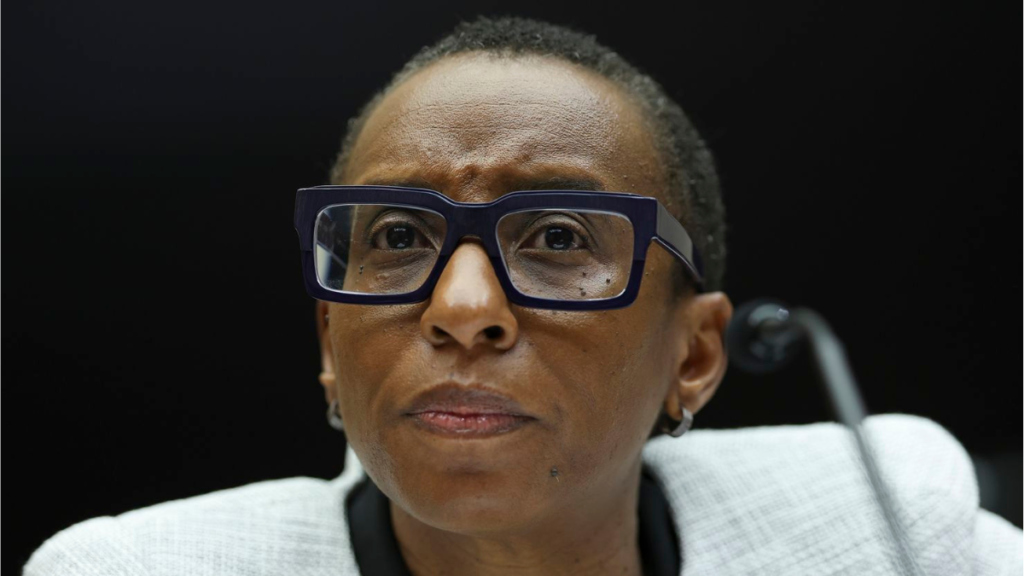Harvard University President Claudine Gay has issued a public apology following her congressional testimony on antisemitism. The apology comes amid widespread criticism for her perceived failure to address calls for the genocide of Jewish people as acts of bullying and harassment on college campuses. The incident occurred during a House Education and Workforce Committee hearing on December 5, 2023. Critics argue that the university presidents, including Liz Magill of UPenn and the president of MIT, failed to take a strong stance on ensuring the safety of Jewish students amidst rising concerns about antisemitism. Major donors and critics are calling for the resignation of university presidents, with UPenn’s Liz Magill facing significant pressure from donors and the Wharton board. The fallout from the congressional hearing on antisemitism continues to reverberate across academia, with university presidents facing calls for resignation, donor rebellions, and institutional scrutiny.
The Antisemitism Hearing
The incident unfolded during a House Education and Workforce Committee hearing on December 5, 2023, where presidents from Harvard University, the University of Pennsylvania (UPenn), and the Massachusetts Institute of Technology (MIT) were called to testify. The hearing aimed to investigate the rise of antisemitism on college campuses, particularly in the aftermath of the October 7 Hamas terror attack on Israel and the subsequent conflict.
Critics argue that the university presidents, including Liz Magill of UPenn and the president of MIT, failed to take a strong stance on ensuring the safety of Jewish students amidst rising concerns about antisemitism.
Calls for Resignation and Institutional Scrutiny
Harvard, UPenn, and MIT, along with other U.S. academic institutions, have come under intense scrutiny for perceived inaction against antisemitism on their campuses. Major donors and critics are calling for the resignation of university presidents, with UPenn’s Liz Magill facing significant pressure from both donors and the Wharton board.
Harvard, specifically, is among 14 colleges under investigation by the Department of Education for potential discrimination related to shared ancestry since the October attacks.
The Apology
President Claudine Gay’s apology to The Harvard Crimson acknowledges the gravity of her words and the impact they may have had on students. She expressed regret, stating, “When words amplify distress and pain, I don’t know how you could feel anything but regret.”
Gay admitted that she got caught up in a combative exchange about policies and procedures during the congressional hearing, failing to emphasize her commitment to preventing violence and threats against the Jewish community at Harvard.
Criticism and Demands for Resignation
Despite the apology, Harvard President Gay and her counterparts from UPenn and MIT continue to face widespread criticism. Hedge fund billionaire Bill Ackman, a Harvard graduate, has called for their resignation, describing their behavior during the hearing as that of “hostile witnesses.” More than 70 U.S. lawmakers have joined the chorus, demanding the immediate removal of the three university presidents.
UPenn’s President under Fire
Liz Magill, the President of UPenn, is particularly targeted for potential dismissal. Donors are threatening to withdraw significant gifts, with one donor pledging to pull a $100 million gift. The Wharton board has also expressed a desire to see Magill ousted.
In response to the criticism, Magill clarified her remarks in a video posted on X, acknowledging that she should have been more forceful in condemning hate speech, especially calls for genocide.
Conclusion
The fallout from the congressional hearing on antisemitism continues to reverberate across academia, with university presidents facing calls for resignation, donor rebellions, and institutional scrutiny. As the controversy unfolds, the broader issue of addressing antisemitism on college campuses remains a crucial topic, demanding careful consideration and proactive measures to ensure the safety and well-being of all students. The acknowledgment of mistakes and public apologies may mark a step towards reconciliation, but the road to rebuilding trust appears challenging for these university leaders.







